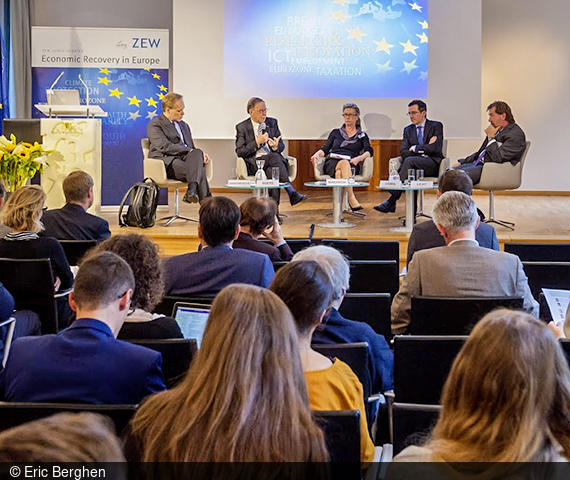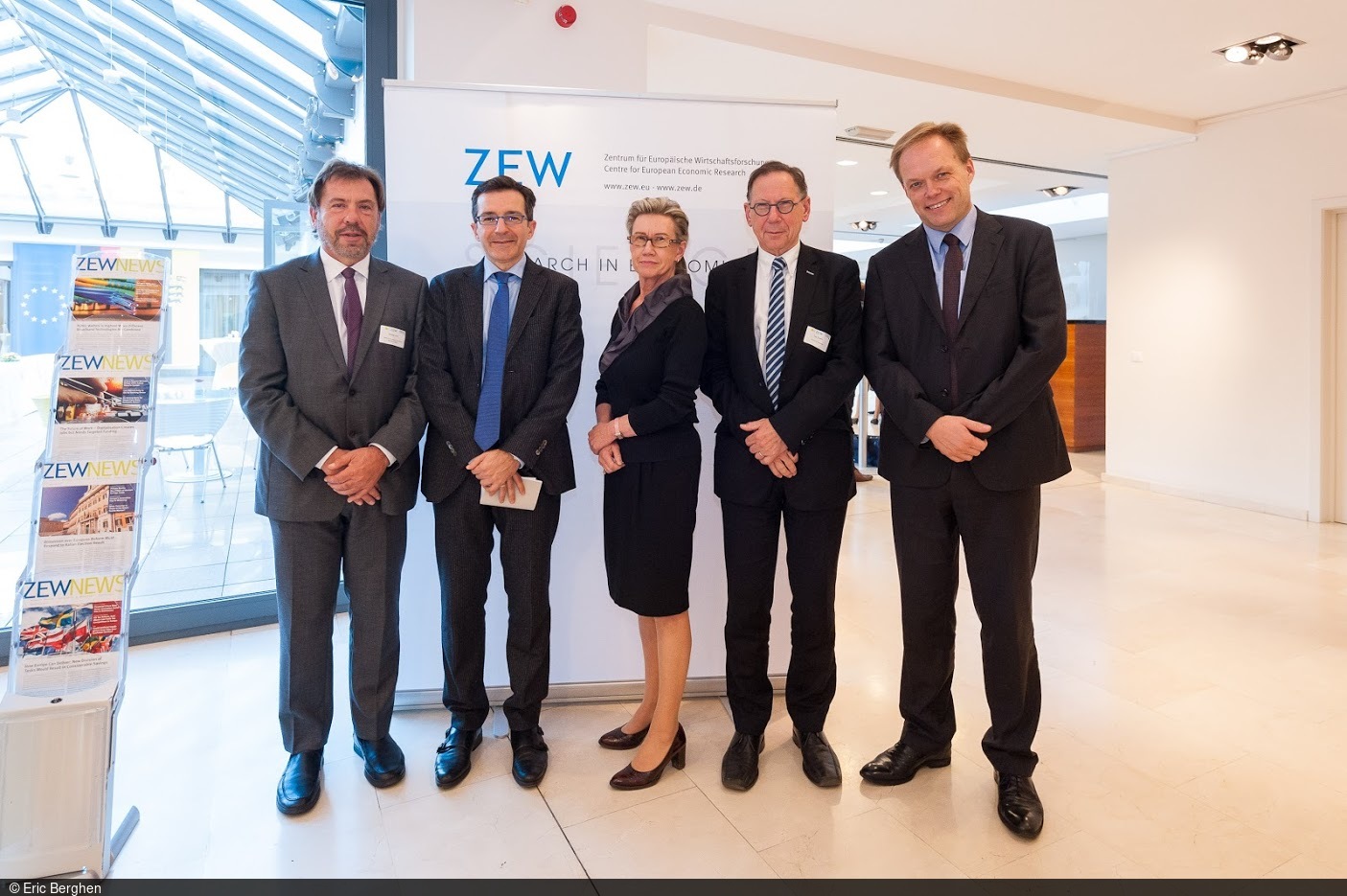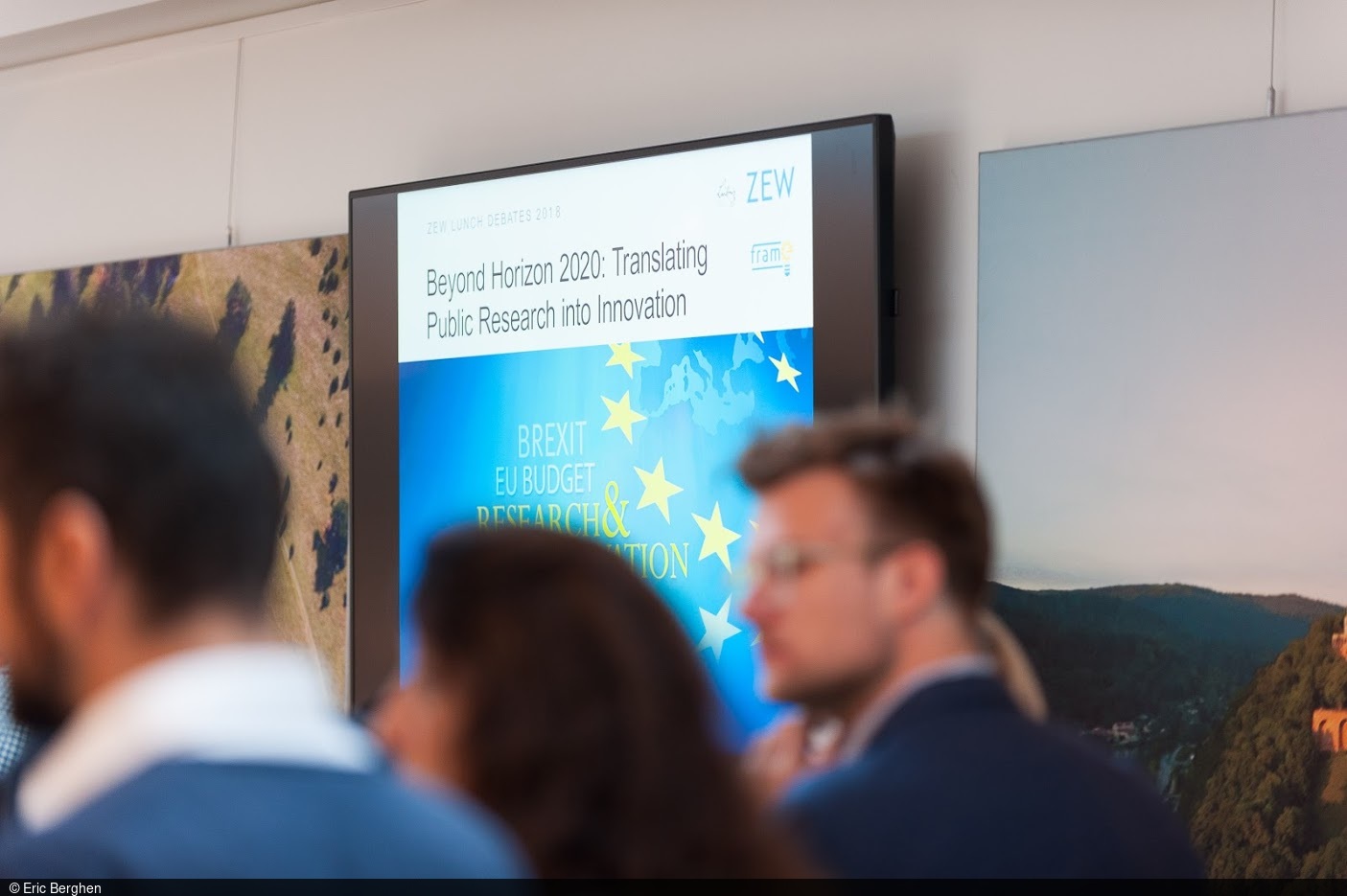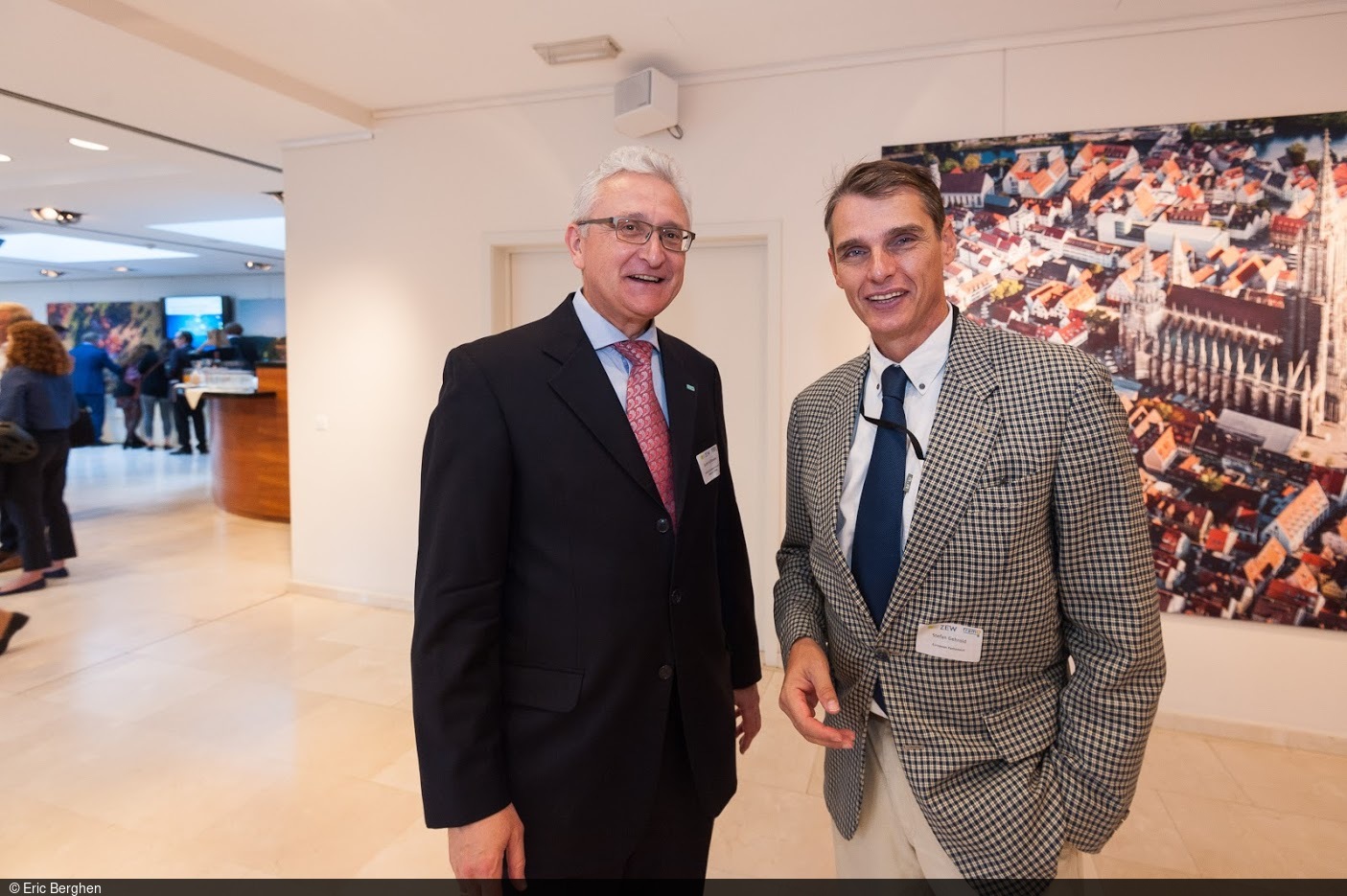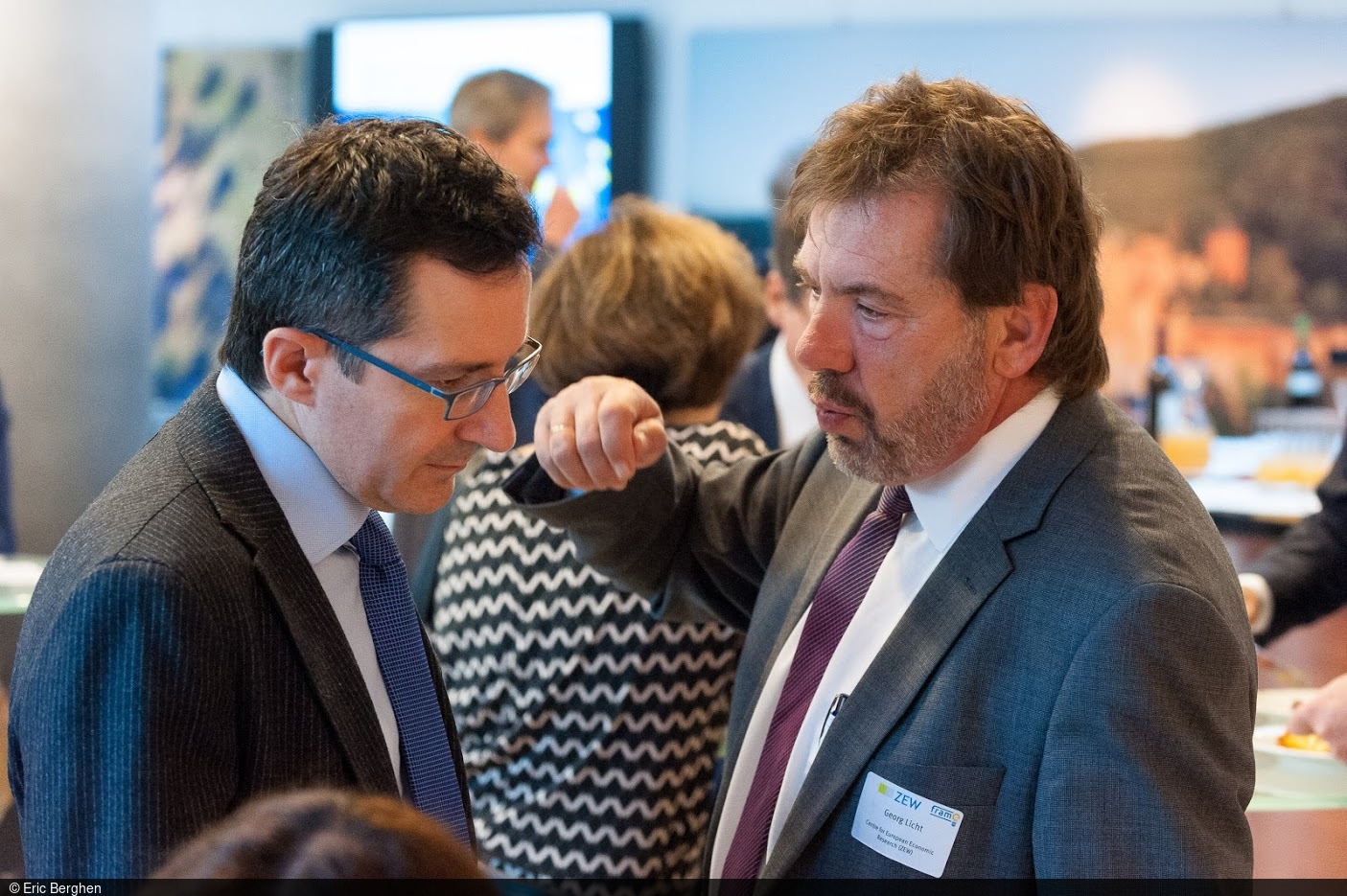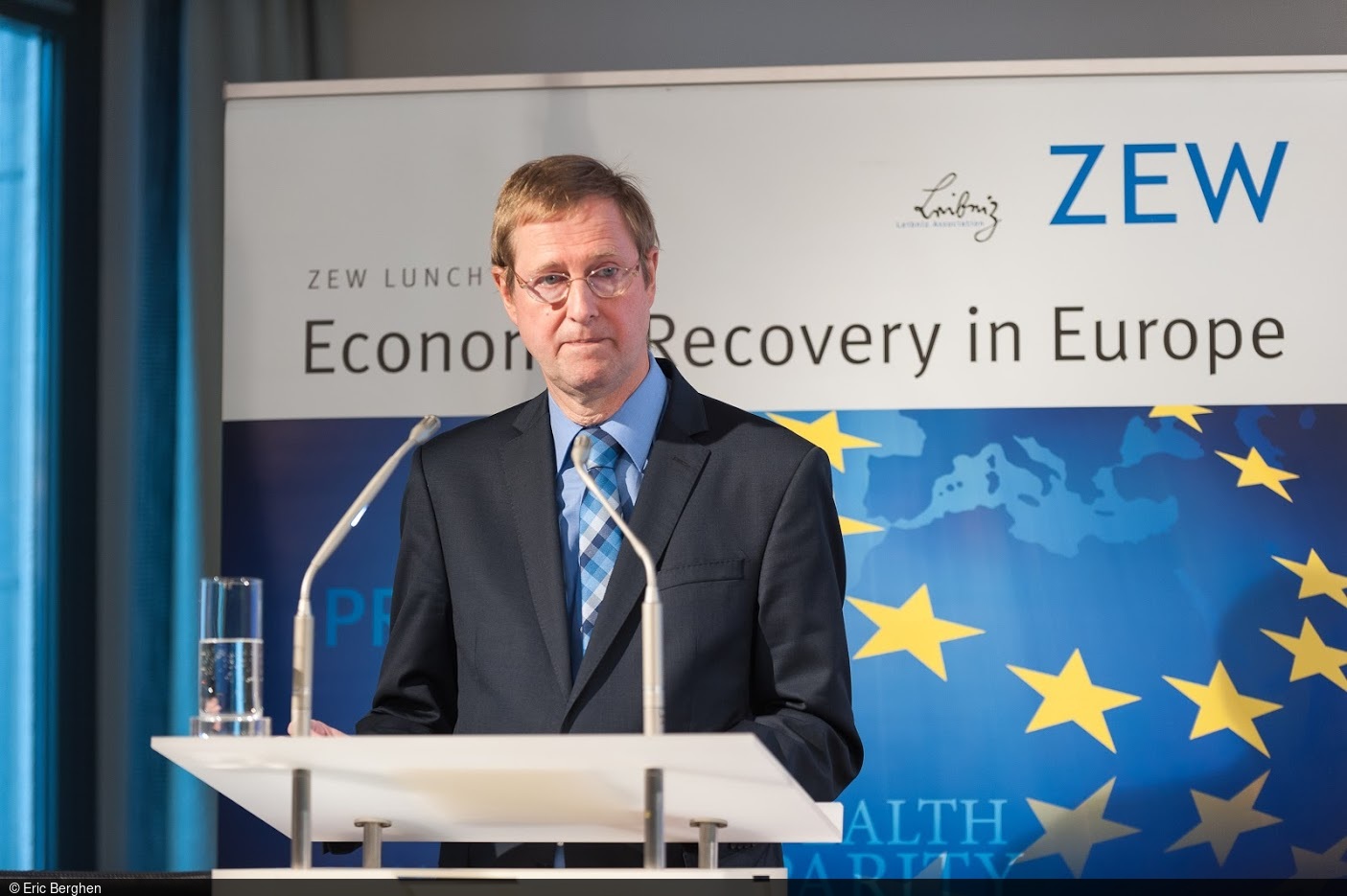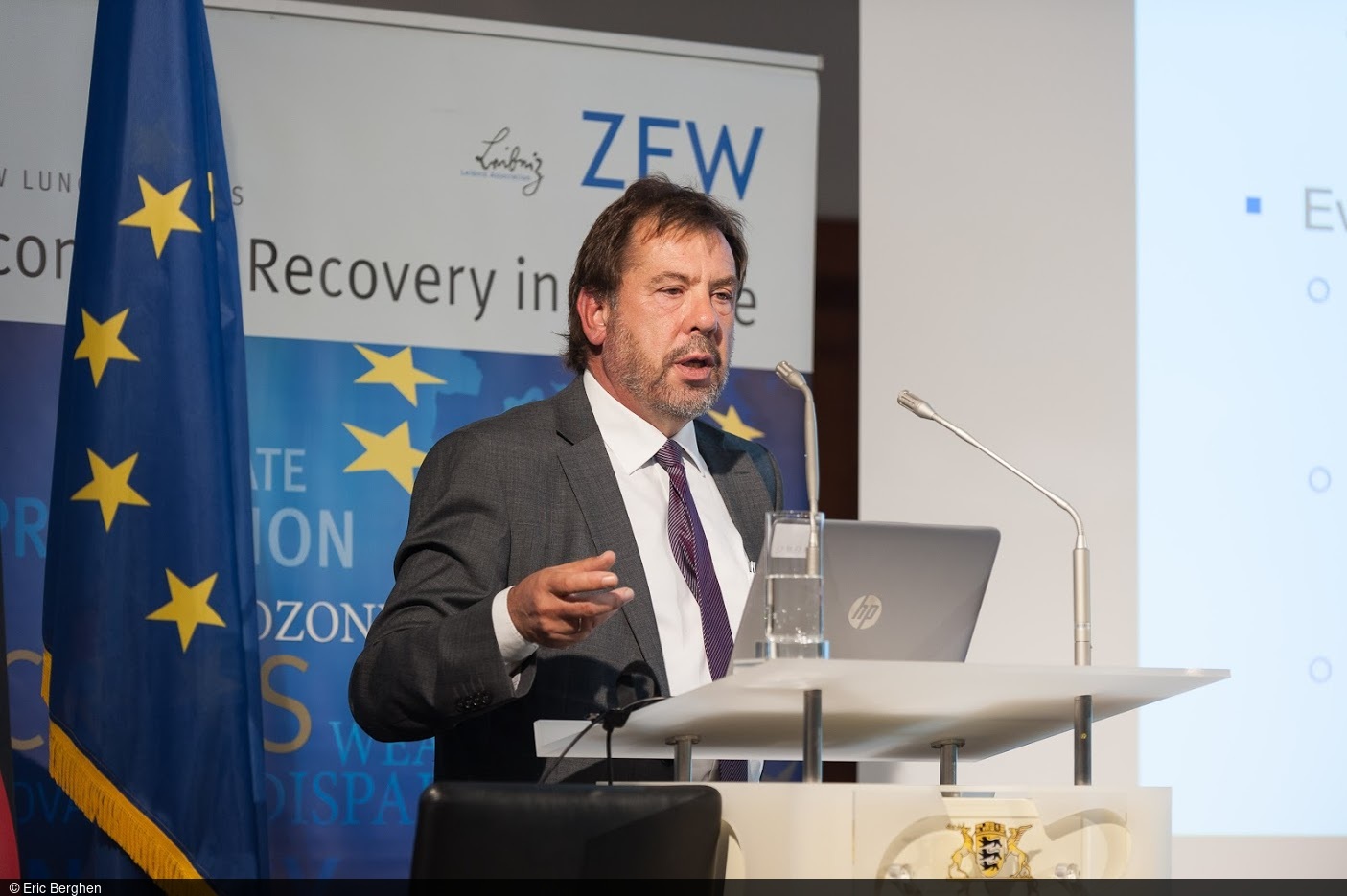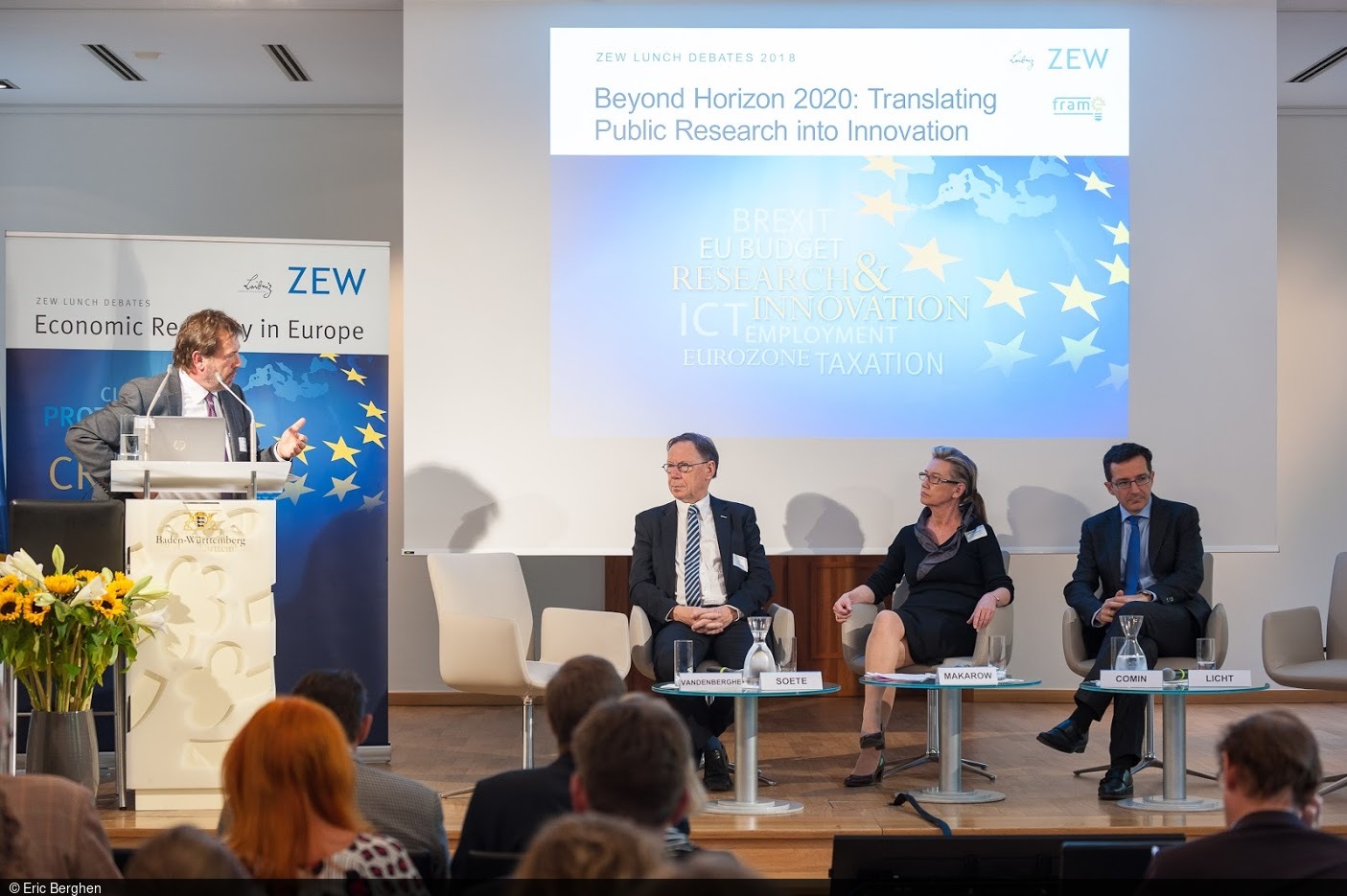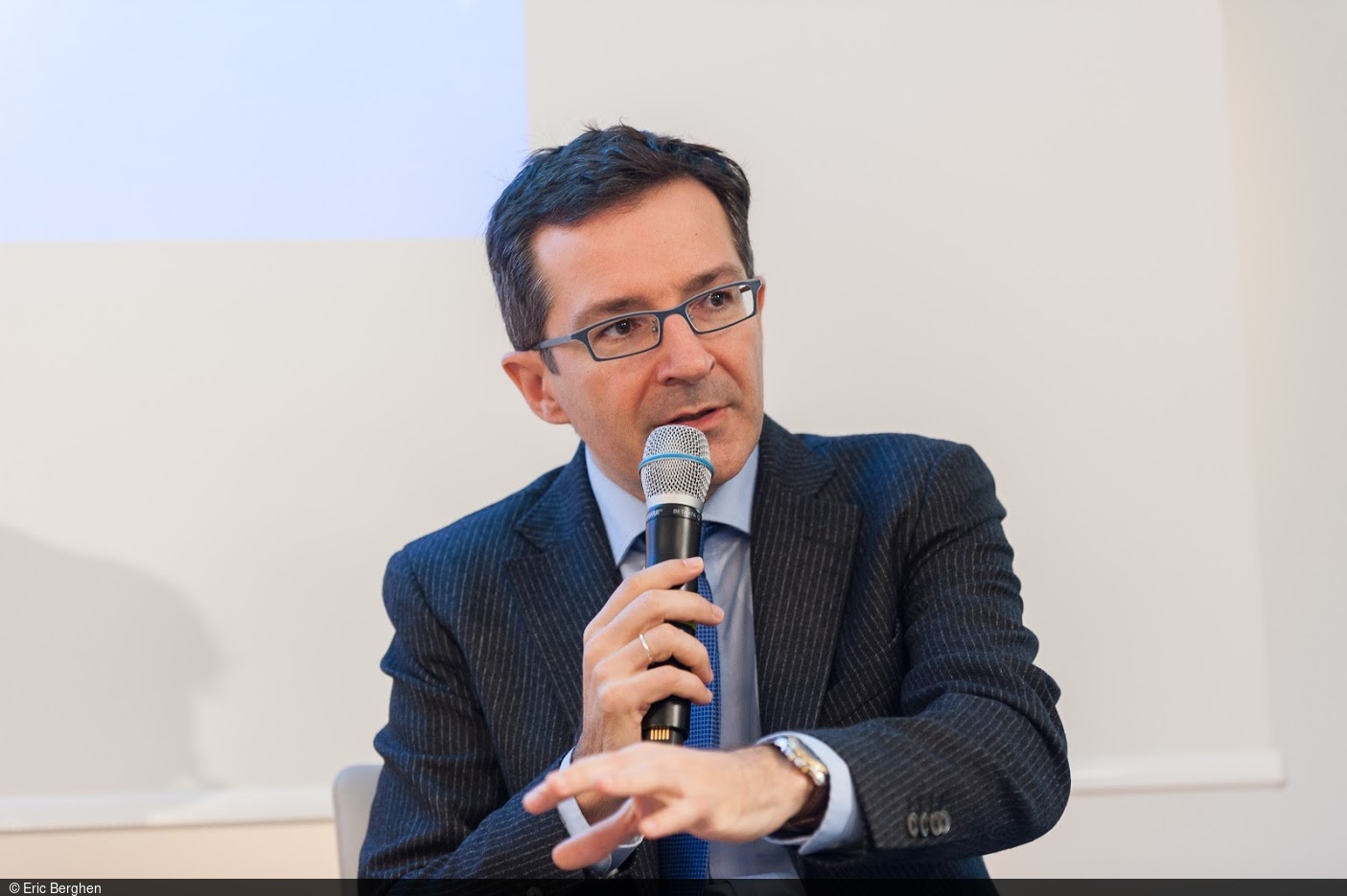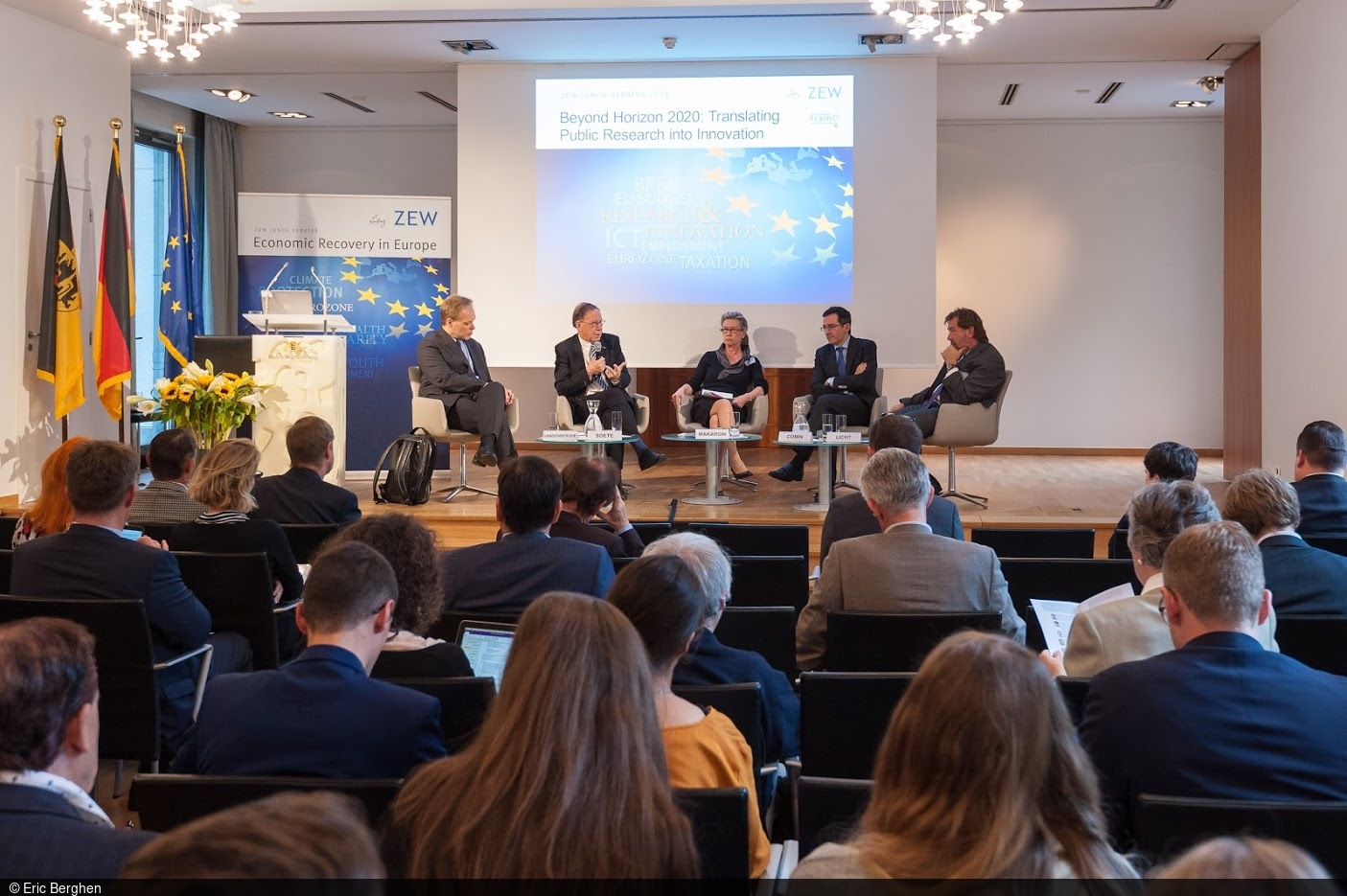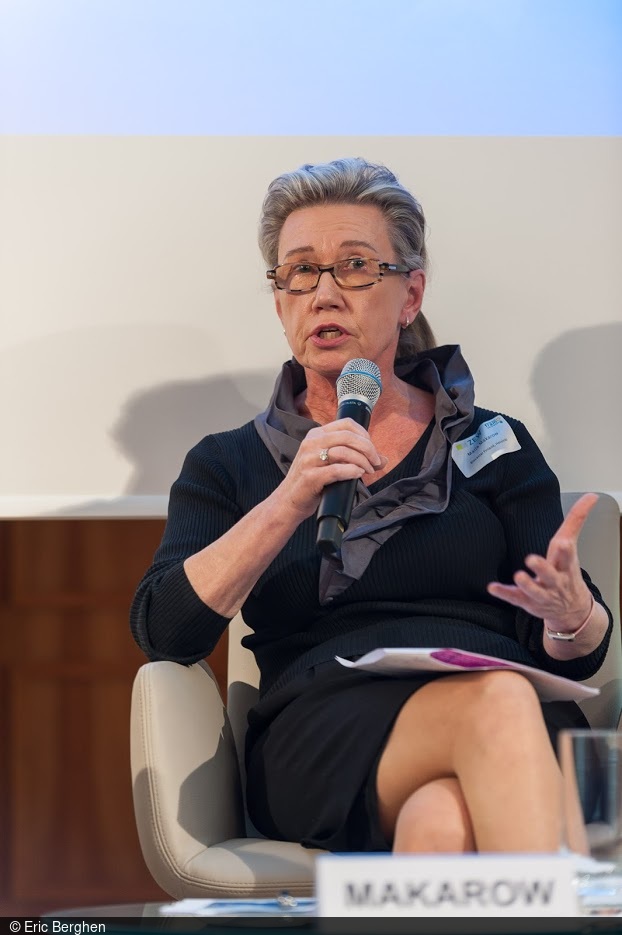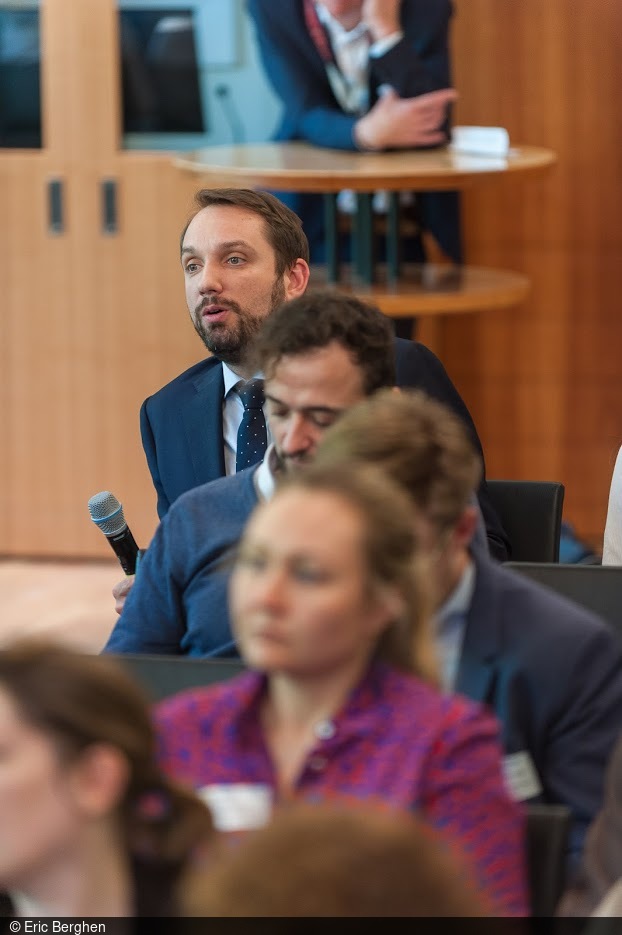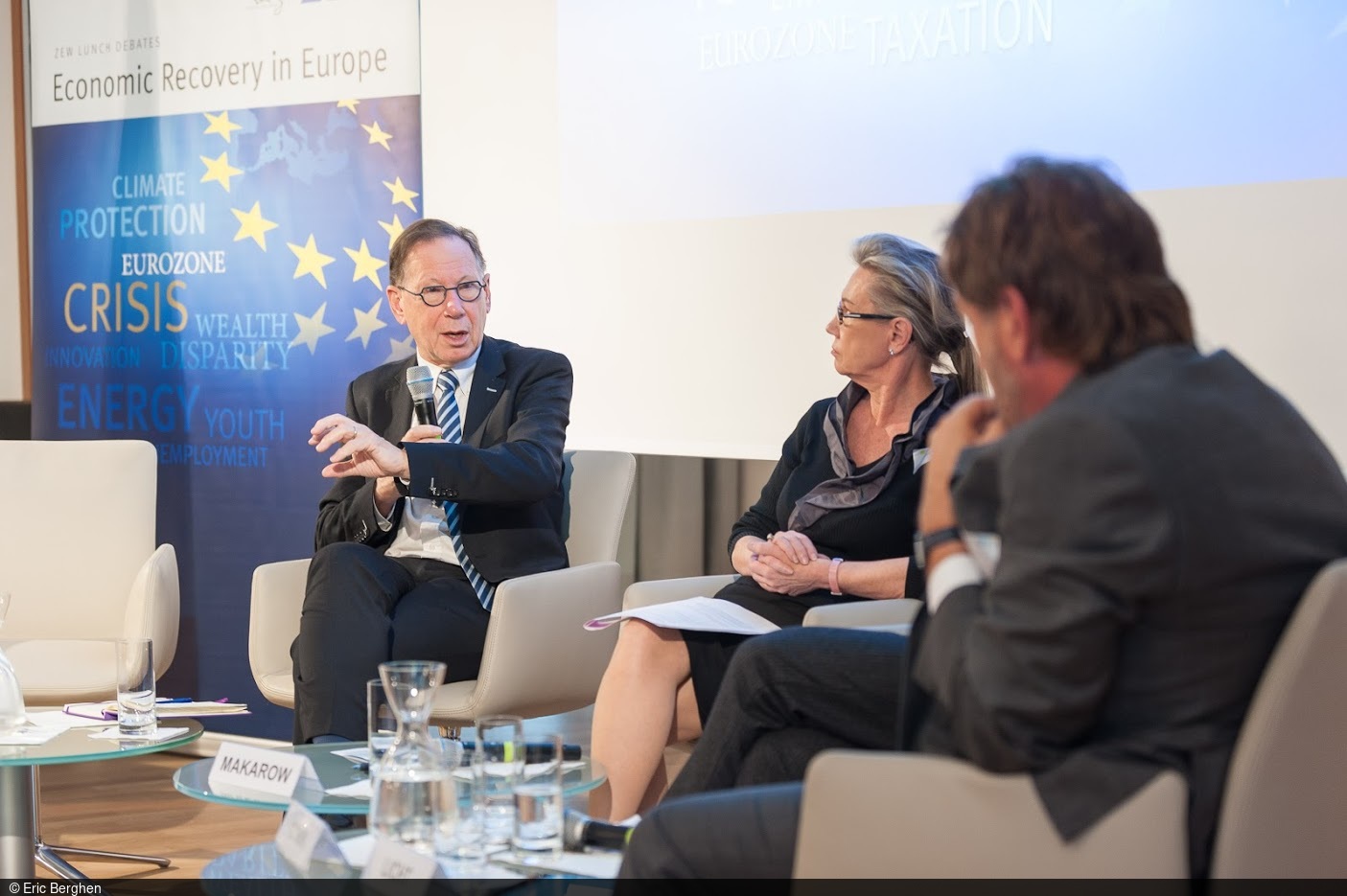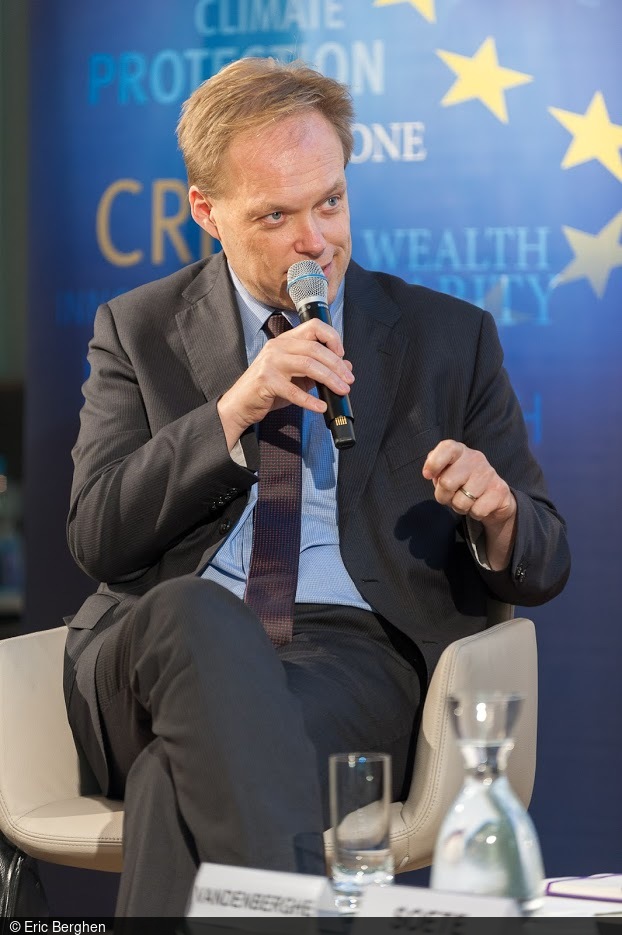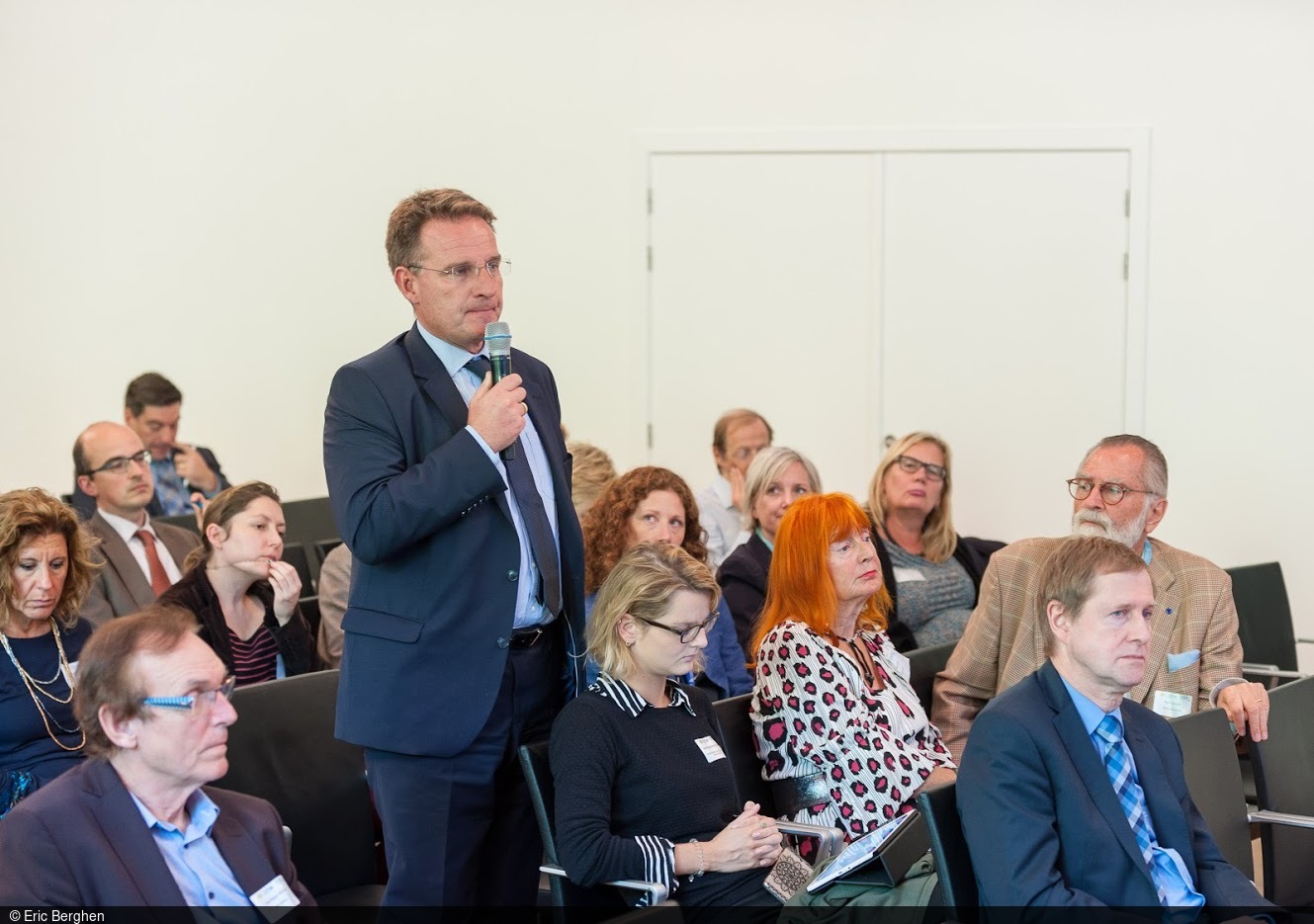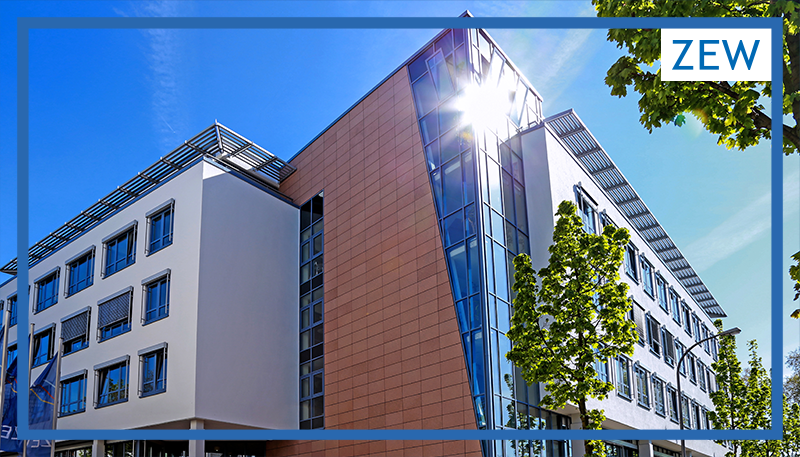Europe Needs an Innovation Policy That Is More Oriented Towards Diffusion
ZEW Lunch Debate in BrusselsZEW was happy to organise a Lunch Debate, entitled “Beyond Horizon 2020: Translating Public Research into Innovation“, at the Representation of the State of Baden-Württemberg in Brussels. With the ninth EU Framework Programme “Horizon Europe” currently being subject of extensive discussion at European level, the event was met with great interest due to its high topicality.
Numerous participants thus gladly seized the opportunity to exchange views with the experts invited by Dr. Georg Licht, head of the ZEW Research Department “Economics of Innovation and Industrial Dynamics”, on the future framework conditions for EU research funding, and to hear their assessment of specific issues that come with it. Georg Licht was joined on the podium by Diego Comin, professor at Dartmouth College and research fellow at CEPR; Professor Marja Makarow, director of Biocenter Finland and vice-president of the University of Helsinki; Luc Soete, honorary professor in economics at Maastricht University and fellow of the Royal Dutch Academy of Sciences; and Kurt Vandenberghe, director in the EU Commission’s DG Research and Innovation.
The twentieth ZEW Lunch Debate in Brussels opened with a short keynote speech delivered by Georg Licht. He made it clear that innovation is one of the most important driving forces for growth in developed economies and ultimately for securing our prosperity, while emphasising the great importance of the rapid diffusion of new knowledge. Recent studies have shown that the speed of knowledge diffusion and the adaptation of new findings are closely linked to international disparities in productivity and prosperity. According to Licht, it is precisely at this point that the EU project “FRAME” (Framework for the Analysis of Research and Adoption Activities and their Macroeconomic Effects), which is being worked on by ZEW together with a number of international partners, comes into play. The project investigates both the creation of innovation and its diffusion. The aim is to develop a toolkit to better assess the effects of innovation policy on key variables such as productivity, production and jobs.
With a view to the new research framework programme “Horizon Europe”, which will be launched in 2021, Licht particularly stressed that in future there shall be a certain number of European projects which focus on EU missions by addressing future-oriented policy fields that are of particular importance for the EU. In addition, there shall continue to be projects that do not tackle such missions but are required to prove that they contribute to the implementation of the sustainable development goals set out in the United Nations’ 2030 Agenda. For all projects the aim is to generate a measurable impact that is as large as possible. Special support should also be given to ground-breaking new ideas and market-creating innovations as well as their diffusion.
Licht opened the panel discussion by asking Diego Comin how these new highlights set in the “Horizon Europe” programme should be assessed. Comin made it clear that innovations always need to be considered in connection with their implementation since they can only take full effect if they are widely used. According to Comin, as the results of the FRAME projects show, it is therefore very important to create a market that brings together innovators and those looking for innovation in order to provide the fastest possible access to new technologies and processes.
The process of diffusing new insights is also of central importance to Luc Soete, who recommended that new technologies as well as alternative ideas and solutions need to be taken into account to develop good problem-solving practices. In order for them to be successful, however, they need to be known. He also suggested to price public goods since there would hardly be any other incentive to implement innovations e.g. in the area of air pollution control or the reduction of CO2 emissions. According to Soete, the mere existence of technical innovations does not guarantee its wide use and diffusion.
Kurt Vandenberghe also agrees that the rapid diffusion of knowledge from public research into innovations and new products poses a problem for Europe. This is in part due to the fact that, generally speaking, scientists are much more interested in research than in knowledge diffusion. Moreover, he argued that Europe has had no real breakthroughs in the high-tech sector to date. In order to counter this problem, Horizon Europe and mission-oriented research projects are increasingly targeting the markets of the future. He continued that this would involve – in a kind of co-innovation approach – the participation of various DGs as well as national ministries and end-users in such mission-oriented projects.
Here Marja Makarow pointed out that with all these new approaches the central sources of scientific knowledge, the researchers at the universities, must not be ignored. She argued that, in Europe, universities are part of the administration, which clearly limits scientific flexibility, and that universities also need the right incentives to invest in innovation.
At the end of the debate, Georg Licht evaluated the plan to strengthen the emphasis on innovation and its diffusion in EU research funding as a good approach, but pointed out that the whole process should not be too bureaucratic and complicated, because otherwise a large part of the desired impact could be lost.
